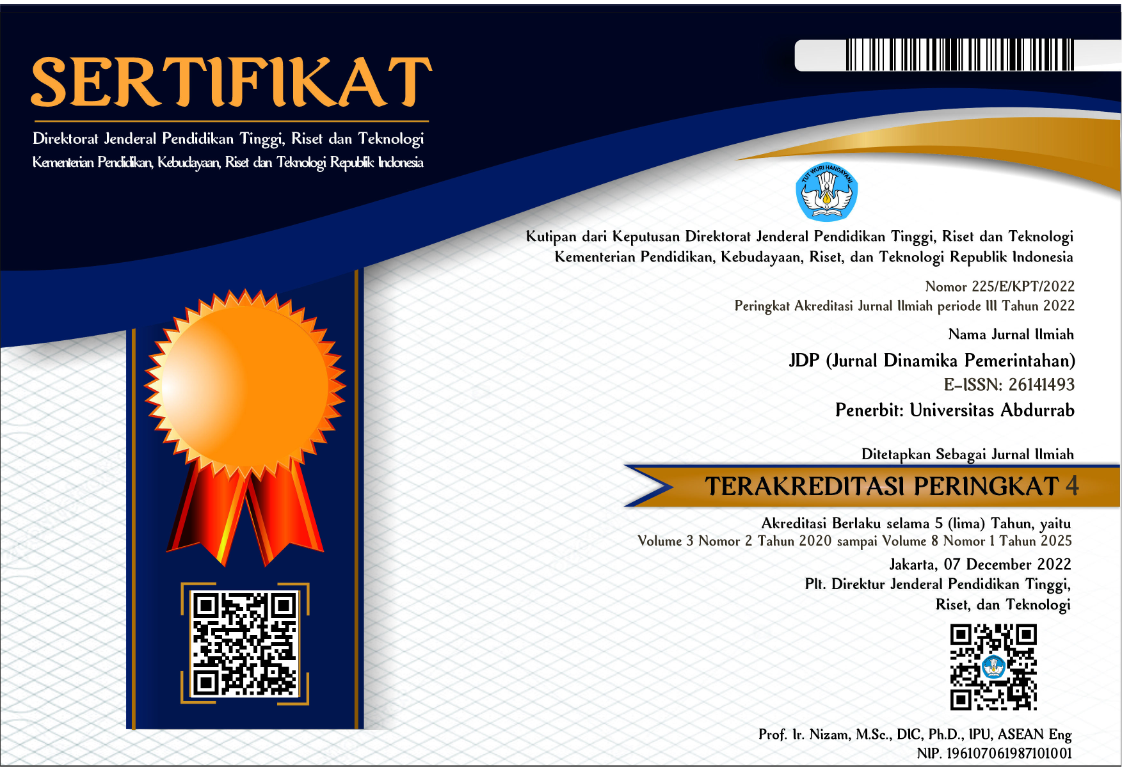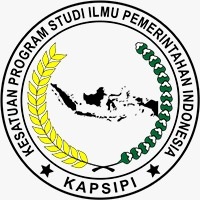PENGAWASAN KOLABORATIF DALAM PELAKSANAAN KEBIJAKAN BANTUAN SOSIAL TERDAMPAK COVID-19
DOI:
https://doi.org/10.36341/jdp.v3i2.1323Keywords:
Collaborative supervision, Social Assistance, COVID-19Abstract
The social assistance policy in the framework of protecting the community affected by COVID-19 empirically experienced a problem, namely the incompatibility in the Target Households (RTS) data, the implication is that many residents should be entitled to receive social assistance but not receive social assistance, otherwise residents categorized as rich actually get the social assistance. Based on these problems, collaborative supervision is needed by various actors to ensure that the policy runs as originally intended. This article uses a qualitative approach with descriptive analysis methods, collecting data using secondary data from a variety of relevant sources such as books, journals, laws and regulations, web pages and other sources. The results of the study revealed that there were no collaborative supervision efforts carried out on the implementation of social assistance policy, the supervision process was carried out using closed internal supervision in which other actors including the community did not have access to carry out the supervision, based on the above, efforts are needed to reconstruct the supervision model of the implementation of social assistance policy that enable collaboration between stakeholders to produce an integrated and synergistic supervision system.
Downloads
Downloads
Published
Issue
Section
License
1. Copyright of all journal manuscripts is held by the JDP (Jurnal Dinamika Pemerintahan)
2. Formal legal provisions to access digital articles of electronic journal are subject to the provision of the Creative Commons Attribution-ShareAlike license (CC BY-NC-SA), which means that JDP (Jurnal Dinamika Pemerintahan) is rightful to keep, transfer media/format, manage in the form of databases, maintain, and publish articles.
3. Published manuscripts both printed and electronic are open access for educational, research, and library purposes. Additionally, the editorial board is not responsible for any violations of copyright law.
licensed under a Creative Commons Attribution-ShareAlike 4.0 International License.













